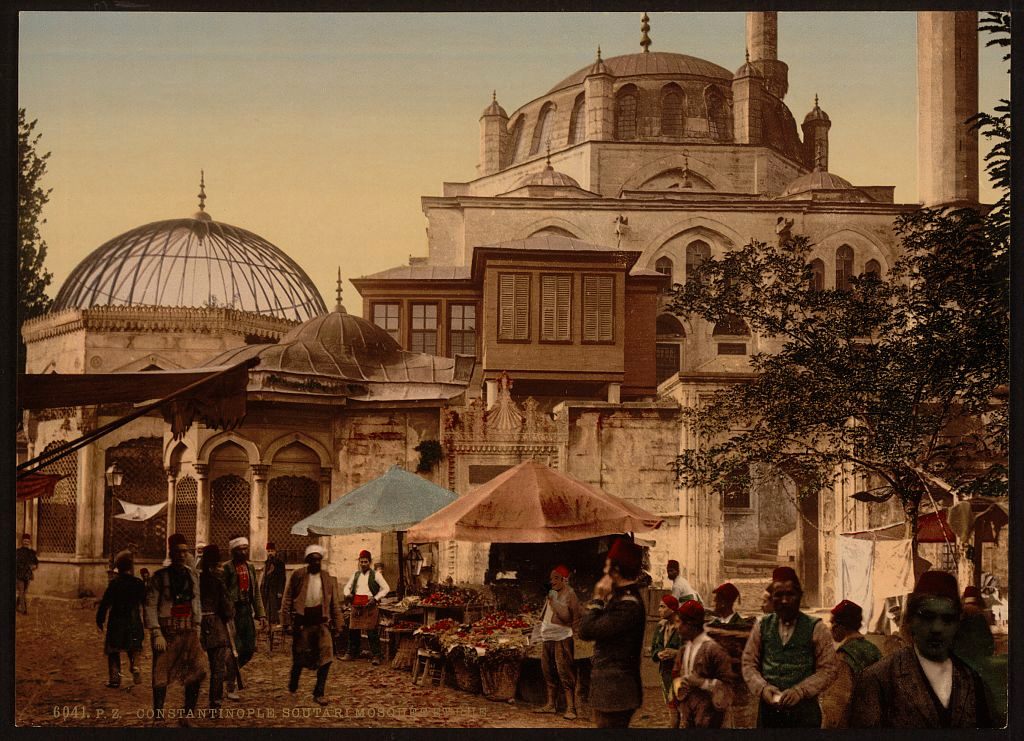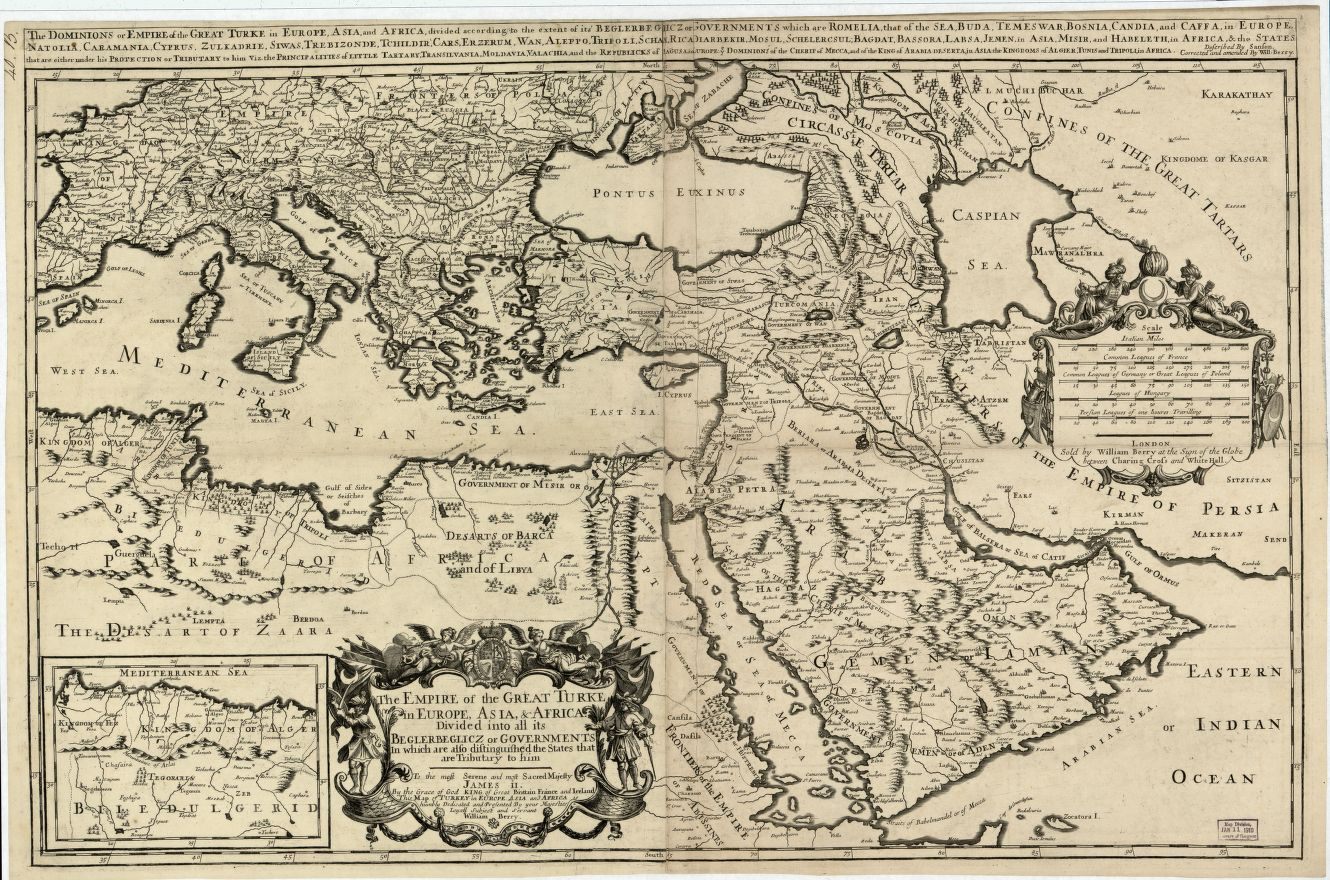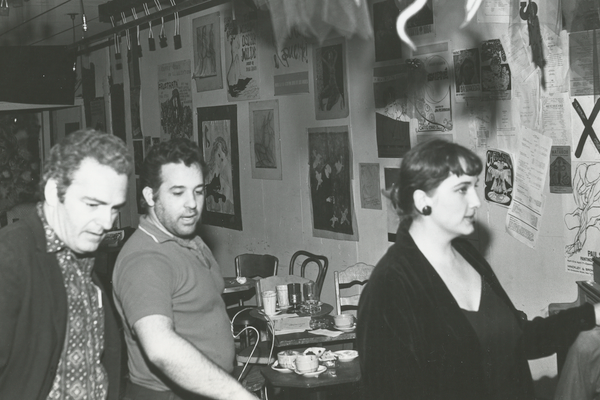The Changing Nature of Lubunca, Turkey’s LGBTQ Slang
The language has long kept vulnerable groups protected, but is now being used for fun and visibility.

A young man wearing huge mirrored sunglasses and a fur coat looks into the camera confidently, while, behind him, a gaggle of fans giggles nervously. He blows a kiss at the camera. “Ablan star bebeğim,” he says to applause.
The phrase means “Your sister is a star baby” and it is in Lubunca, a secret Turkish queer slang that has been used by the LGBTQ community in Turkey since the late Ottoman era. Until recently only a tiny subset of Turkish society even knew what Lubunca was, let alone how to speak it. Now Lubunca is going viral.
The young man in the video is a famous queer DJ named Kerimcan Durmaz who has over two million followers on Instagram. He is part of a wave of young, queer social media stars who are bringing Lubunca out of the back alleys where it was born and into the limelight. “Thousands of people are watching their Instagram stories, Snapchat videos and hear those words,” says Kunz, an anonymous queer blogger who only goes by his pseudonym.
Kunz says that because of Durmaz everyone was saying “Ablan star bebeğim” in the summer of 2016. “Even people on TV shows were using this saying,” says Kunz. He explains that in Lubunca, Abla directly translates as “a feminine old gay person” although it’s closer to “sister” in English. In Turkey, where 78 percent of the population say they reject homosexuality, according to 2013 Pew study, people on TV saying “abla” casually is a big change.
Before the advent of Twitter and Instagram, Lubunca was primarily used among LGBTQ sex workers, particularly transgender women. “Lubunca was born to urgent need,” explains Gizem Derin, a transgender man and activist. “It was created by transgender women. When they were walking in the streets they needed to protect themselves from abusive crimes and police.”
To this day transgender sex workers are the most at risk. Prevailing attitudes against queer people in Turkey mean that when crimes are committed against transgender sex workers they are rarely reported and even more rarely prosecuted.
No one is quite certain of when Lubunca began. The first recorded instances of it were in the 1980s, but linguistic clues suggest that it was in use by the end of the Ottoman period in the early 1900s.

Many of the words in Lubunca have their roots in Roma—the language spoken by Romani people. “Lubni”, the root of Lubunca, comes from the Romani word for “prostitute.” In the late Ottoman era, says Nicholas Kontovas, a socio-historical linguist who has studied Lubunca extensively, Roma people lived on the outskirts of Ottoman society. It was also around this time that many of the traditional Turkish bathhouses—previously centers for sex work among the middle and upper classes—stopped being centers for male and trans sex workers.
“Lubunca and the social context that it came from arise from changing Ottoman attitudes towards male-male sexuality,” says Kontovas.
He explains that it’s easy to find multiple references to young male sex workers in literature from the classic Ottoman period. They are referred to as “boys” even though many of them were as old as 25. At least among the upper classes there seemed to be no stigma about a man sleeping with other men as long as it did not interfere with his duties to his wife.
But as the Ottoman empire went into decline, these values slowly started shifting, and by the early 1900s men having sex with men was morally taboo. Kontovas believes this may have been the root of Lubunca. Bathhouses were no longer safe private spaces for sex workers and so queer sex worker communities sprang up in neighborhoods that were shared by Roma people.

Another clue that Lubunca was used in the Ottoman period is the nature of its puns. Before 1925 the Turkish alphabet was based off of Arabic script. “The Turkish word for five means bottom because Arabic numeral five looks like a round thing,” says Kontovas, laughing. This means that Lubunca was used at a time when people were familiar with the Ottoman alphabet— as far back as the late Ottoman period in the 1920s.
Linguists and sociologists first started recording Lubunca in the ‘80s and ‘90s, but Kontovas thinks that this is because attitudes around discussing sex had started to open up at that time—not because Lubunca was growing.
Since then Lubunca has been recorded in academic circles but it is only with the advent of social media that it truly started to go mainstream. Stars like Durmaz are making Lubunca cool and profitable. In the summer of 2016 Durmaz made “Ablan star bebeğim” into the hook for a club tune. In the music video Durmaz strides across a roof, purse first, with doubled sunglasses on. It’s camp, it’s fabulous and without social media there is no way it would exist in Turkey.

But the growth of Lubunca is not without its problems. Kontovas compares the current moment in Turkey to Britain in the 1960s, when homosexuality was still illegal and queer people used the secret language Polari to communicate. In the 1960s Polari started to become more mainstream through a massively popular BBC radio show called Round the Horne. But the language’s very popularity defeated its purpose, says Kontovas.
“People didn’t use Polari when it became popularized by Round the Horne. The popularity signals greater openness for discussion of sexuality in the society. But it’s a Pyrrhic victory. People who might still need it for secrecy, trans sex workers, people who are not funny and can’t integrate, can no longer practically use it for secrecy,” he says.
In Britain’s case the popularity of Polari came around the same as the LGBTQ civil rights movement. Polari mostly died as a language after it became popular. But that was also because it was no longer as needed.
However, greater public awareness of Lubunca is not coming at the same time as increasing LGBTQ rights in Turkey. In fact, it’s just the opposite. The government in Turkey is deeply conservative. In 2010, former family minister Aliye Kavaf described homosexuality as a “disease.” This year, for the third year in a row, Turkish authorities canceled Pride in Istanbul citing security threats from far-right groups. The decision was criticized by Pride organizers, who stated, “Security cannot be provided by imprisoning us behind walls, asking us to hide, preventing us from organizing and being visible, and encouraging the ones who are threatening us.”

In this environment the people who continue to be most at risk are transgender women. Many transgender women are unable to find work because of discrimination and turn to sex work out of economic necessity. They are working illegally with great risk of violence or arrest. It is the reason that they still need Lubunca and why, despite the language’s popularity online, the majority of people who speak it fluently are transgender women.
“A lot of trans sex workers are still victimized by the police,” says Kontovas. “Gay men use it less fluently than trans women. Because it is still needed for trans women.”
But people like Kunz don’t believe that Lubunca should be secret. Rather, they point to the importance of visibility. “If you talk Lubunca in the society, people could understand your identity or understand that ‘you’re different.’ So, if the aim is to hide our identities and to create safe spaces, Lubunca is not something very beneficial here,” says Kunz. “In my opinion, people use Lubunca mainly for fun today and it makes a good contribution to LGBTQ visibility in the society.”
Still, just because Lubunca is becoming more widespread does not mean that it will inevitably start to die out—not as long as it’s useful.
Kontovas points out that language always changes and shifts with the times. Lubunca may diverge, he says. On the one hand there may be the mainstream Lubunca used in bits and pieces by the broader public. On the other hand there may be the secret Lubunca that will continue to grow and change as long as it’s needed.









Follow us on Twitter to get the latest on the world's hidden wonders.
Like us on Facebook to get the latest on the world's hidden wonders.
Follow us on Twitter Like us on Facebook